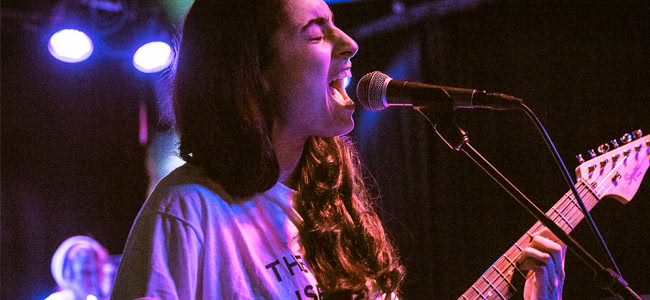The issue of female representation in Australian music has once again been thrust to the forefront of the industry dialog, precipitated by the criticism recently levelled at the organisers of Spilt Milk Festival.
As Tone Deaf reports, punters as well as triple j alumni KLP and Nina Las Vegas criticised the first-round lineup of the new Canberra-based event for featuring just one female artist — Vera Blue — on a list of 16 acts.
“I think the promoters just don’t think about it and talking about it may make them realise we could represent a more diverse line-up,” said KLP. “The more we can make it equal on those stages, the more young girls will see it and think ‘I could do that’.”
“We can’t blame festivals and promoters; it’s everyone in the industry and comes down to labels signing more women and playing more women on the radio.” Indeed, even the organiser of Yours and Owls, which boasts a 50/50 spread of male and female acts, admits it wasn’t intentional.
“Our process is I go out and hunt around for a lineup and come back to everyone with what I’ve got and one of the guys pointed out it was half girls,” Tillman told News Corp. “I was just trying to get the best line-up, these were the acts that were available…”
Spilt Milk organisers responded to criticism in a statement, acknowledging the issue of gender parity on festival lineups and assuring fans and critics alike that the festival’s imminent second lineup will feature more female acts.
Controversy was stirred last year after a mock-up of the Leeds and Reading festivals lineup with all of the male acts removed began making the rounds online. At the time, organiser Melvin Benn said he had simply booked the best lineup available.
Am I reading this right? 1 female? 😑 The young girl in me is feeling so uninspired to try be a musician in bro-town https://t.co/UIlKWaUlsB
— KLP (@klpmusic) June 9, 2016
lol so backwards https://t.co/18dSmgPvOc
— Nina Las Vegas (@ninalasvegas) June 9, 2016
Indeed, most acknowledge that festival promoters aren’t a bunch of rogue misogynists purposefully omitting female acts from their lineups. Indeed, in the case of Spilt Milk, the festival is the brainchild of four female music promoters.
As KLP told News Corp, the issue is more systemic, and thanks to a recent analysis by PS Music Group, a Queensland-based booking agency, we can now take a more accurate look and thus gain a better understanding of what that system looks like.
PS Music Group performed an analysis of the current Australian bookings market, including artist gender representation amongst a sample of 30 Australian booking agencies. In other words, they surveyed how many male, female, and ‘split’ acts were signed to Aussie booking agencies.
What they found was both surprising and worrying. According to PS Music Group’s analysis, 76 percent of the acts signed to the 30 booking agencies surveyed are male, 18 percent are female and, six percent feature male and female members.
Whilst booking agencies are obviously not the only source for festival lineups, they are arguably the most prominent, with most lineups coming as the result of negotiations between festival organisers and agents from different organisations.
Taking PS Music Group’s statistics into consideration, a clearer picture of the way the music industry is skewed against female acts begins to emerge. If a lineup was chosen blindly at random, you would statistically still end up with a mostly male lineup.
[include_post id=”439014″]
What this suggests is that if we want to balance the scales, a careful review of the way our local music industry functions is in order. But it also suggests that one of the most important variables in the equation is support.
After all, booking agencies sign acts based on who they think will yield the biggest return, i.e. who can put bodies in a room. They use different metrics to determine who they reckon has the potential for this kind of success, from ticket sales to social media followings.
That kind of support — the ticket sales, the social media likes — can only come from us, the punters. If we truly want to see more female acts on Australian music festival lineups then it’s up to us to support them from the ground up.
Check out your local gig guide tonight and buy a ticket, click like, share a track on Facebook, there’s lots of ways to support an artist. Only then can we even the scales and hopefully have more young girls say to themselves, ‘I could do that.’
(Photo: John Goodridge / The Upside News)




































